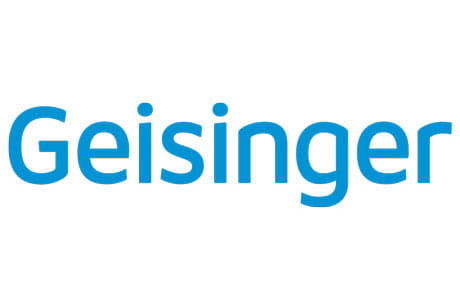Geisinger, IBM create predictive technology to flag sepsis risk
The body's response to an infection can cause sepsis, a potentially life-threatening condition that affects about 1.7 million American adults. Sepsis is a complex syndrome that is difficult to identify early, as symptoms such as fever and low blood pressure overlap with other common illnesses. The infection is linked to more than 250,000 deaths annually.
Geisinger’s team of scientists, led by Dr. Shravan Kethireddy, initiated the research project to build a predictive model for sepsis mortality based on data from an actual, critical hospital setting. Partnering with the IBM Data Science and AI Elite teams, they assembled a six-person swat team to develop two projects: a model to predict sepsis mortality and a tool to keep the team on top of the latest sepsis research.
“For clinicians, making a sepsis diagnosis can be very difficult, as the symptoms overlap with many other common illnesses. If we can identify patients more quickly and more accurately in the future, we can administer the right treatments early and increase the chances of a positive outcome,” said Dr. Donna Wolk, division director, Molecular and Microbial Diagnostics and Development at Geisinger.
The team used IBM Watson Studio open source tools to build a predictive model that would ingest clinical data from thousands of de-identified sepsis patients spanning a decade. Then they used all the data to build another model to predict patient mortality during the hospitalization period or during the 90 days following their hospital stay. The model helped researchers identify clinical biomarkers associated with higher rates of mortality from sepsis by predicting death or survival of patients in the test data.
“Our experience using machine learning and data science has been very positive, and we see huge potential to use it in the medical field in future,” said Dr. Vida Abedi, Geisinger staff scientist, Department of Molecular and Functional Genomics. “We are planning to break new ground in laboratory and clinical care for sepsis and achieving more positive outcomes for our patients.”
The project revealed descriptive and clinical features such as age, prior cancer diagnosis, decreased blood pressure, number of hospital transfers, and time spent on vasopressor medicines, and even the type of pathogen, all key factors linked to sepsis deaths.
Geisinger research teams hope to increase patient chances of recovery by paying attention to the key factors linked to sepsis deaths.
“It’s very important for me as a clinician and a research scientist to save patient lives using all the knowledge of the data and the clinical background,” said Dr. Hosam Farag, a bioinformatic scientist in Geisinger’s Diagnostic Medicine Institute. “Machine learning can close the care gaps and optimize the treatment. That makes me passionate about our future research.”
Videos
Read more about Geisinger’s case study here.
Watch this video on fighting sepsis with machine learning by Dr. Hosam Farage.
Watch“Winning with AI”, with Dr. Donna Wolk and Hannah Storm.
Watch“Exploring insights on Sepsis using IBM Studio (aka IBM DSX local)” for sepsis literature.
About Geisinger
Geisinger is among the nation’s leading providers of value-based care, serving 1.2 million people in urban and rural communities across Pennsylvania. Founded in 1915 by philanthropist Abigail Geisinger, the non-profit system generates $10 billion in annual revenues across 134 care sites - including 10 hospital campuses, and Geisinger Health Plan, with 600,000 members in commercial and government plans. The Geisinger College of Health Sciences educates more than 5,000 medical professionals annually and conducts more than 1,400 clinical research studies. With 26,000 employees, including 1,600 employed physicians, Geisinger is among Pennsylvania’s largest employers with an estimated economic impact of $14 billion to the state’s economy. On March 31, 2024, Geisinger became the first member of Risant Health, a new nonprofit charitable organization created to expand and accelerate value-based care across the country. Learn more at geisinger.org or connect with us on Facebook, Instagram, LinkedIn and X.

